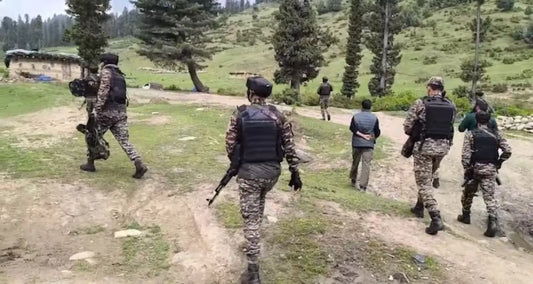Indian Air Force's Strategic Strike Compelled Pakistan to Seek Ceasefire: Vice Chief

The Vice Chief of the Indian Air Force, Air Marshal Narmdeshwar Tewari, announced on Friday that less than 50 precision weapons deployed by the IAF during Operation Sindoor were sufficient to prompt Pakistan to seek an end to hostilities.
During the conclusion of a 'Warfare and Aero Strategy Programme' organized by the Centre for Air Power Studies, an IAF-affiliated think-tank, the Vice Chief highlighted the strikes on May 10 against 11 Pakistani air bases as a significant demonstration of air power's impact in contemporary warfare.
"We have examined the cost-benefit ratio of air power. Operation Sindoor serves as the prime example. Fewer than 50 weapons brought the adversary to negotiations. Scholars should study this instance," Air Marshal Tewari stated.
The attacks, carried out on the fourth day of the conflict that started on May 7, used long-range weapons, reportedly including BrahMos missiles, launched from IAF jets and ground-based systems. Following the May 10 operation, Pakistan contacted the United States for mediation and later reached out to Indian authorities proposing a ceasefire.
Air Marshal Tewari also addressed the changing dynamics of air warfare, stressing that manned fighter jets remain crucial in coercive diplomacy. "A manned fighter jet can convey the appropriate message and currently holds an advantage over unmanned platforms," he mentioned.
He also recognized the growing importance of UAVs and armed drones, acknowledging their destructive power and increasing significance in modern conflicts.
The event saw the participation of top military leaders, including Chief of Defence Staff General Anil Chauhan, Air Chief Marshal AP Singh, and Army Chief General Upendra Dwivedi.



















